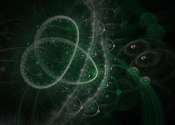Unlocking the secrets of ice
The complex properties of water and ice are not well understood but a team from UCL and the ISIS Neutron and Muon Source have revealed new information about a phase of ice called ice II.

The complex properties of water and ice are not well understood but a team from UCL and the ISIS Neutron and Muon Source have revealed new information about a phase of ice called ice II.
Condensed Matter
Apr 9, 2018
0
170

A dying worm experiences rigor mortis early in the death process, rather than after the main event as it is for humans, according to a new study by an international team of scientists at UCL and Washington University.
Cell & Microbiology
Mar 6, 2018
0
195

Cells that form facial features need surrounding embryonic tissues to stiffen so they can move and develop, according to new UCL-led research.
Cell & Microbiology
Feb 15, 2018
0
75

Up to 16% of all species on Earth could qualify as potential alien species and if they invade new regions, impacts will be difficult to predict, according to new research involving UCL.
Ecology
Feb 5, 2018
0
44

Flowering plants likely originated between 149 and 256 million years ago according to new UCL-led research.
Evolution
Feb 5, 2018
0
457

A promising new approach to detect immunity to Ebola virus infection has been developed by researchers from i-sense in a collaboration between UCL and Imperial College London.
Bio & Medicine
Jan 15, 2018
0
52

A method of securely communicating between multiple quantum devices has been developed by a UCL-led team of scientists, bringing forward the reality of a large-scale, un- hackable quantum network.
Quantum Physics
Jan 11, 2018
0
4112

Methane in shale gas can be turned into hydrocarbon fuels using an innovative platinum and copper alloy catalyst, according to new research led by UCL (University College London) and Tufts University.
Materials Science
Jan 8, 2018
0
21

Rock engravings located in Western Venezuela - including some of the largest recorded anywhere in the world - have been mapped in unprecedented detail by UCL researchers.
Archaeology
Dec 7, 2017
0
989

Storytelling promoted co-operation in hunter-gatherers prior to the advent of organised religion, a new UCL study reveals.
Social Sciences
Dec 5, 2017
6
869